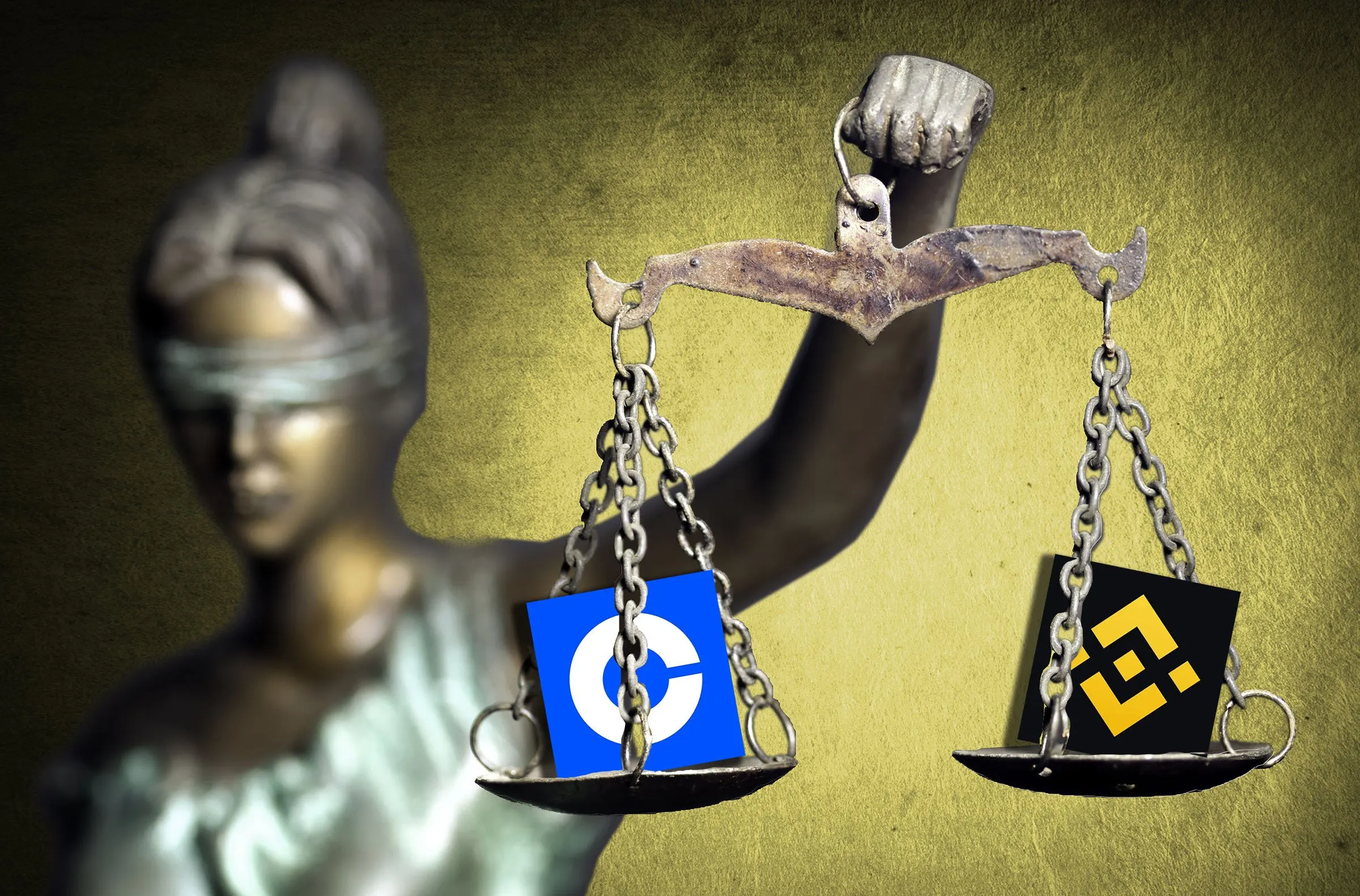The U.S. Securities and Exchange Commission (SEC) has gone after two of the world’s biggest crypto brands this week, suing Binance and Coinbase and making very serious allegations about both companies.
In his ongoing onslaught against the industry, SEC Chairman Gary Gensler on Monday alleged that Binance, the world’s biggest digital asset exchange by volume, was run through a “web of deception” by CEO Changpeng Zhao and commingled customer funds.
The regulator on Tuesday then claimed that America’s biggest crypto exchange Coinbase operated for years as an unlicensed securities exchange and “elevated its interest in increasing its profits over investors’ interests.”
But the lawsuits are different. Though the allegations against Coinbase are serious, the complaint against Binance is more damning: It directly mentions the company’s CEO and is significantly longer, with heavier allegations.
According to Federica Pantana, an attorney in Davidoff Hutcher & Citron’s Corporate Law practice, who specializes in securities law compliance, Binance may be in bigger trouble, because “a company may never recover from fraud or similar claims.”
Commingling Funds vs. Businesses
The SEC claims digital asset behemoth Binance moved around customers’ fiat and crypto “as defendants pleased”—an allegation reminiscent of those against its disgraced former competitor, FTX. Although it’s worth pointing out that unlike FTX founder Sam Bankman-Fried, who is facing 13 criminal charges, the U.S. has not yet leveled criminal charges against Binance or Zhao.
While against Coinbase, the SEC alleges that the San Francisco-based company for years operated as an unregistered national securities exchange, broker and clearing agency. It also alleges that Coinbase offered and sold unregistered securities via its staking service.
And though the complaint claims Coinbase is guilty of commingling, it doesn’t allege the commingling of funds—rather, functions.
“In other parts of our securities markets, these functions are separate,” the SEC said, referring to the functions of a securities exchange, broker and clearing agency.
No Fraud Allegations for Coinbase
According to former CFTC trial attorney Braden Perry, the Coinbase complaint is “much different.”
He said: “It alleges no fraudulent activity, only that Coinbase merged three functions that are typically separated in traditional securities markets—those of brokers, exchanges, and clearing agencies—but has never registered as any of these things, violating securities law.”
But he added that it was “striking” that the SEC ostensibly approved the business model under its IPO diligence.
Through thirteen charges, we allege that Zhao and Binance entities engaged in an extensive web of deception, conflicts of interest, lack of disclosure, and calculated evasion of the law. https://t.co/E06hVOaYby
— Gary Gensler (@GaryGensler) June 5, 2023
Binance CEO Also a Defendant
The SEC further alleges that Binance’s wrongdoings took place under “Zhao’s control.” As the main defendant, the SEC mentions the company’s CEO and the richest man in crypto nearly 200 times in the 136-page complaint.
In the Coinbase lawsuit, CEO Brian Armstrong is just mentioned once.
Perhaps most alarmingly are the allegations that billions of dollars of customer funds went to a bank account for an entity controlled by Zhao.
“For example, through accounts owned and controlled by Zhao and Binance, billions of U.S. dollars of customer funds from both Binance Platforms were commingled in an account held by a Zhao-controlled entity (called Merit Peak Limited), which funds were subsequently transferred to a third party apparently in connection with the purchase and sale of crypto assets,” the complaint added.
SEC Alleges Binance.com Welcomed US Customers
The SEC also alleges that despite Zhao and Binance claiming that American customers were restricted from using Binance’s biggest platform, “behind the scenes” they “secretly” allowed big U.S. customers to trade on the crypto exchange—an alleged evasion of securities laws.
Binance.US is an American exchange for American citizens that uses the Binance logo but is run independently, according to Binance. But it has always done far less volume than the main exchange at Binance.com.
In Coinbase's complaint, on the other hand, the SEC does not allege that the exchange unlawfully offered services to customers it wasn’t meant to do business with. But it's worth pointing out that one of the penalties the SEC is seeking in the Coinbase lawsuit would enjoin—or ban—the company from operating as an exchange or broker in the U.S..

